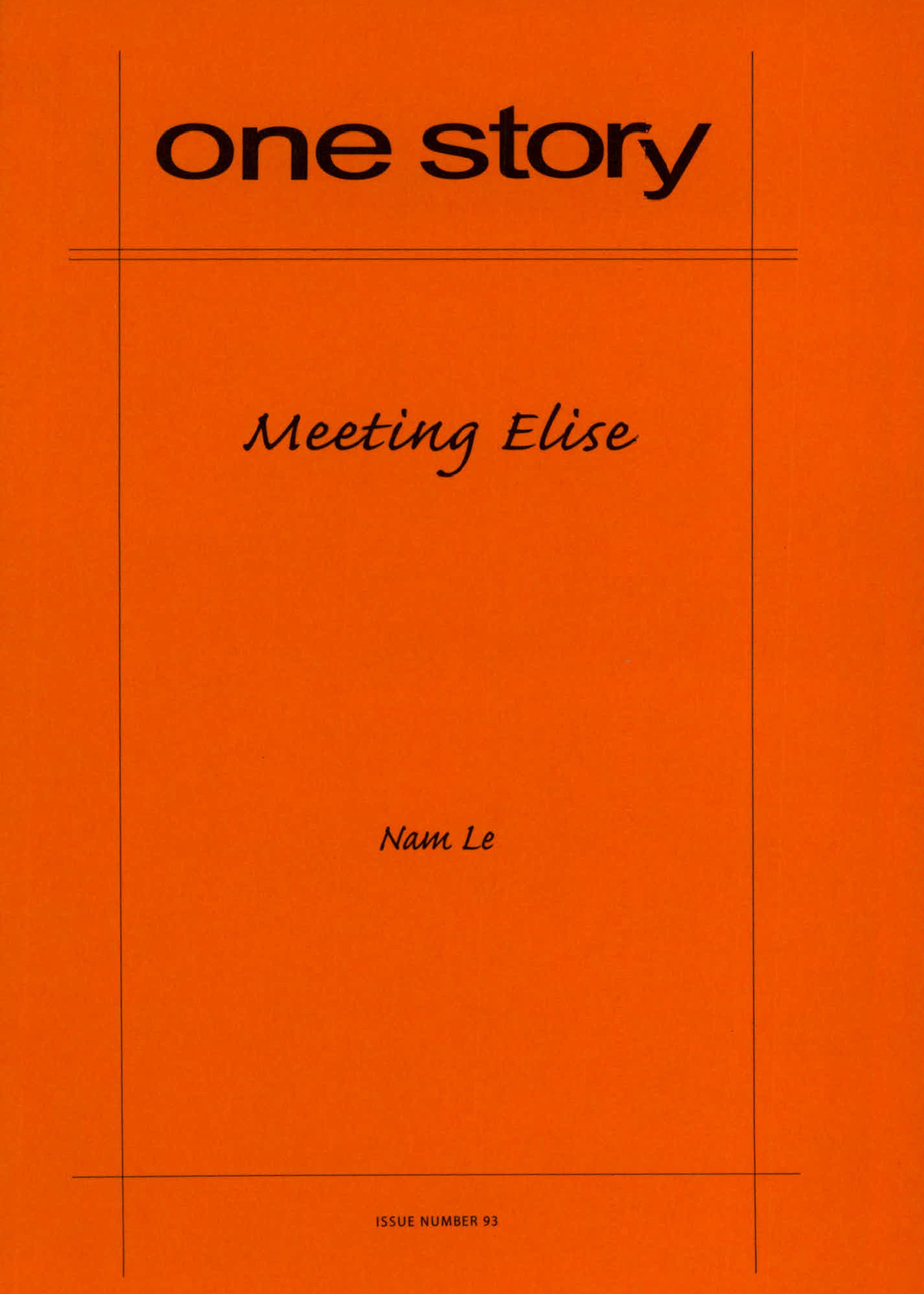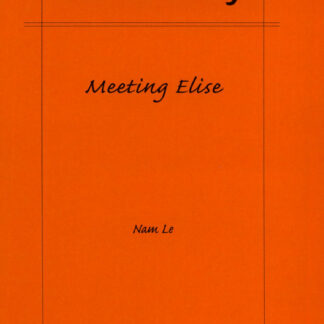
Meeting Elise
$2.50
43 in stock
Excerpt
She’s coming today. It’s 11:40 AM. I get into a kneeling position in the bathtub then slowly stand up, one trembly, lard-like leg at a time. Water runs down my chest and over my creased s tom ach. My head was doing okay for a while there. I flick the soggy cigarette I’ve been smoking into the bathwater, snatch up the tube of lidocaine. My ass is burning.
You’re a dirty old man, Olivia used to say, speaking generally, smiling that toothy, canine-sharp smile she reserved for me. It made me horny and she knew it. We used to spend half our time here, sitting in this long, deep tub, spying on the street below. She liked to watch strangers. I liked watching her. I almost demolished this apartment so we could both get our perve on. It took a binder full of expert appraisals and zoning permits before I was allowed to knock out the wall, put in a steel frame and glass-brick the whole thing back up.
It gets me a bit loose-headed, all this reminiscing. I climb out of the bathtub and take off my sunglasses. It’s not so bright outside, not today.
Nam Le
Nam Le was born in Vietnam and raised in Australia. He has received the Pushcart Prize, the Michener-Copernicus Society of America Award, and fellowships from the Iowa Writers’ Workshop, the Fine Arts Work Center in Provincetown, Phillips Exeter Academy, the MacDowell Colony, and Yaddo. His fiction has appeared in venues including Zoetrope: All-Story, A Public Space, Harvard Review, and Best American Nonrequired Reading. His debut collection of short stories, The Boat, will be published by Knopf in Summer 2008. For more information visit www.namleonline.com.
Q&A by Hannah Tinti
- HT: Where did the idea for this story come from?
- NL: I guess from a more abstracted formulation than most/ usual for me: I was asking myself what’s the worst possible pain someone could feel (figuring if I used that as a jumping off point I could minimize the distance I’d have to go myself to move the reader—the cost-effective approach). So I thought parent losing child. Then I thought what if the child’s still alive? That way there could be a constant and continuing evolution to the hurt. Then I thought what if I make this guy as (on paper) unsympathetic as possible, so as to try and complicate the reader’s affective movement? And all through this was some variant of the final image: father watching daughter on stage far away—a dance, maybe, or a play—and in that moment feeling (again, the imperative toward efficiency) everything—or as much as I could jam in - all at once.
- HT: What was the most challenging aspect of writing this story?
- NL: The ending. I was trying to navigate between two things: 1) avoiding the closed-ness of an either/or situation (i.e. does he meet her or not?) and 2) trying to figure out whether not writing such a scene would constitute some sort of abdication on my part (narrative situations build pressure and it’s always—perversely—at points of potential explosive pay-off that I find myself almost compelled to open a valve—fear of being unequal to the climax, I guess). So I wanted to make sure that by taking the story where it goes at the end, I wasn’t taking an easy out.
- HT: How did you come up with the character of Henry Luff? Why did you choose to make him an artist?
- NL: I’ve always found it fascinating when detestable protagonists are given full charismatic first-person voice. It’s almost a necessity in this story as Henry is pretty much the only character. I wanted him to come across uncut and unapologetic, but I didn’t want the occasion of the story to be a defense, i.e. I wanted him narcissistic but in a non-self-justificatory way. Having him be an artist dealing with matters non-art seemed to strike this balance, as well as offer license for a world-view that’s askew and lyrically loaded. Also, I’d never written from an older person’s POV so I thought that might be fun.
- HT: Henry’s mental and physical state deteriorate throughout the story. Did you know from the beginning that Henry was dying?
- NL: I think so. Part of that was just authorial delight in giving a character a hard time—the just-when-you-thought-it-couldn’t-get-any-worse device—but of course, for me, any pathos lies not so much in what’s happening to him but how he’s finding himself—his engagement mechanisms—inadequate to it. He’s a tough, hard-bitten New Yorker with ready and unreserved access to his feelings—or at least how he feels about things—and is outspoken as a matter of principle—maybe survival—yet this MO fails him bit by bit as his day comes down on him. That, more than anything, marks his death: his failure of articulation: Henry’s apprehension of mortality becomes the same thing as the language’s apprehension of its own failure to convey it.
- HT: Olivia seems to represent both an angelic figure (full of light) and a specter of death. Was this your intention?
- NL: Olivia was an interesting character to write—she’s almost entirely second-hand—filtered through and distorted by Henry’s memory, as well as the events of the day. Moreover, she’s inevitably set off against and conflated with Elise, who’s also young, beautiful—and even more opaque as a character. I’m normally resistant to blurriness in characterization but here it’s intrinsic to their characters; Olivia exists only as a crucible for Henry’s steaming reflections, conscious and subconscious, so it makes sense that she’d come across as all kinds of things.
- HT: Have you ever seen a Guadagnini, or heard it played?
- NL: No—though if anyone out there wants to spot me airfare and a concert ticket—all for the sake of verisimilitude, of course—I guess I could clear some space in my calendar.
- HT: What is the best bit of advice about writing you have ever received?
- NL: A friend of mine told me that Marilynne Robinson had told him that plausibility was purely a matter of aesthetics. I liked it then and I like it even more now.
- HT: What are you working on now?
- NL: A novel with Thai pirates in it.
